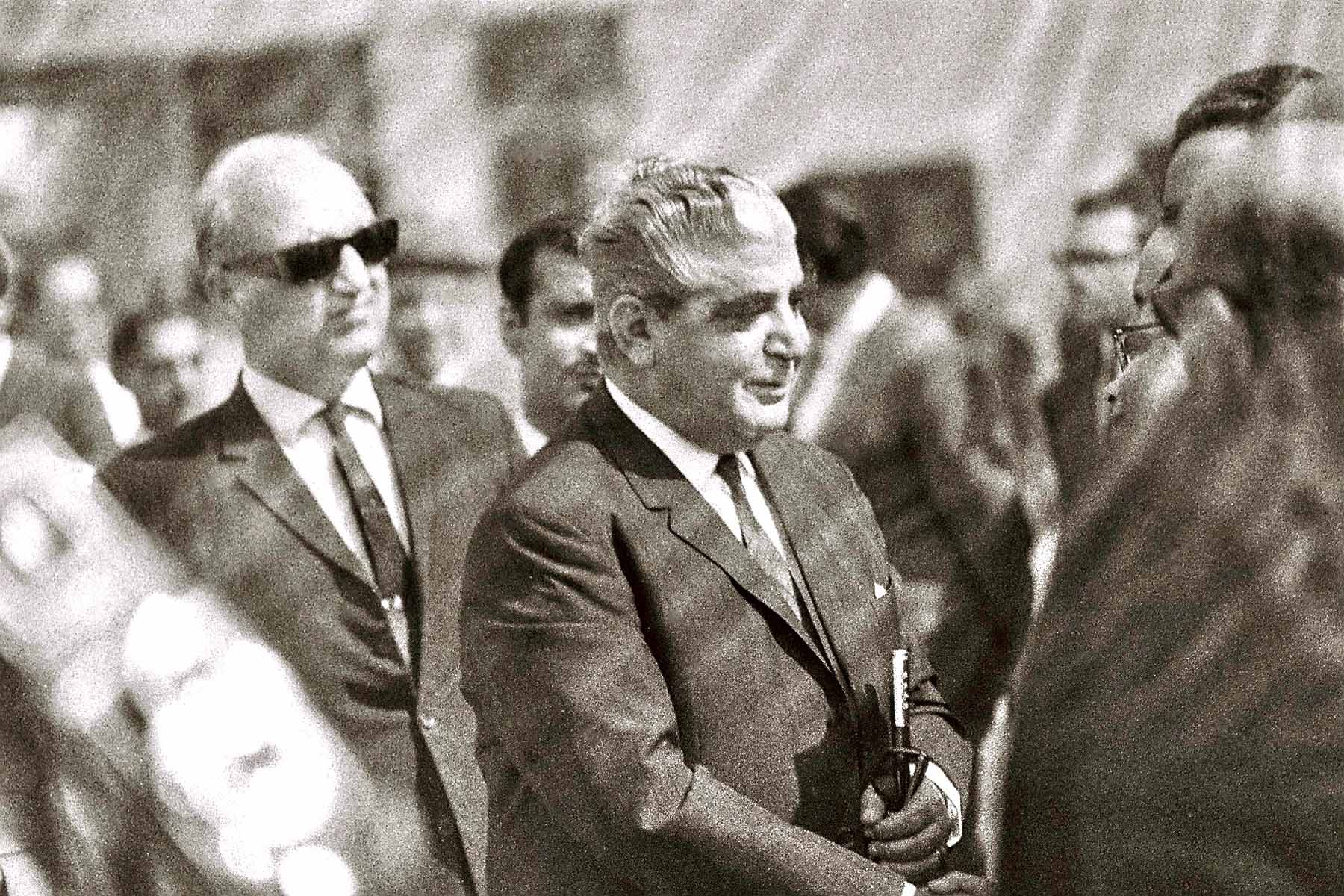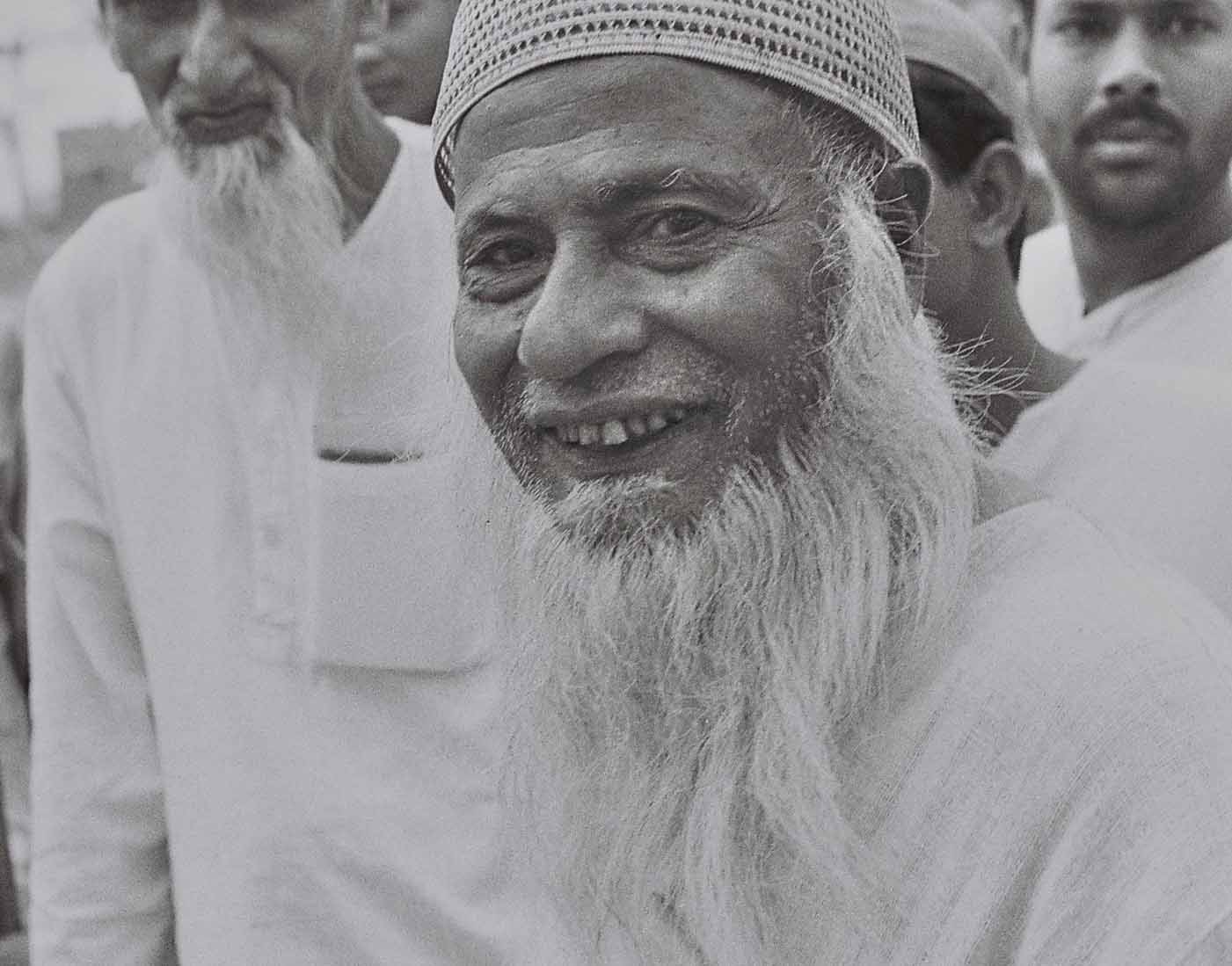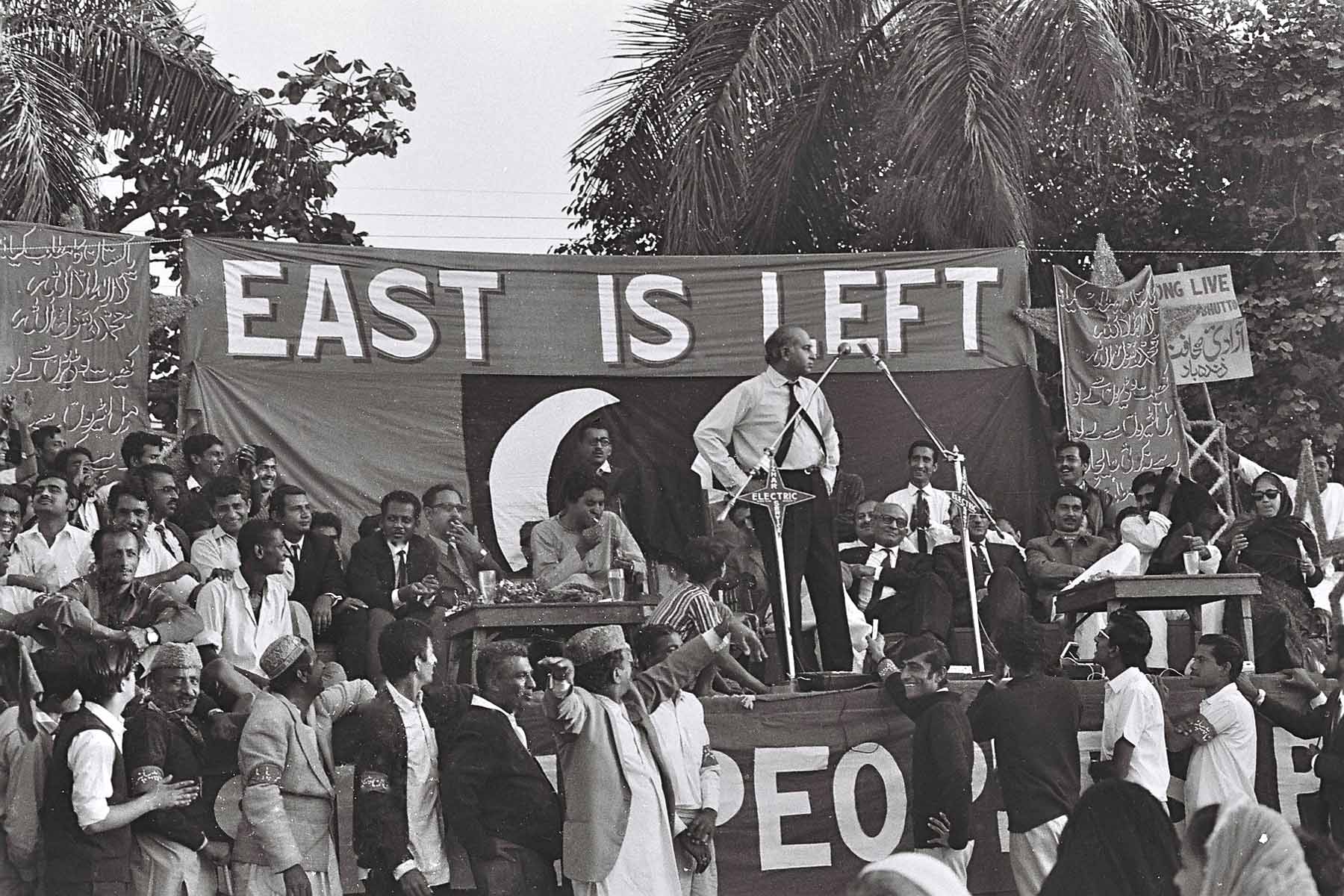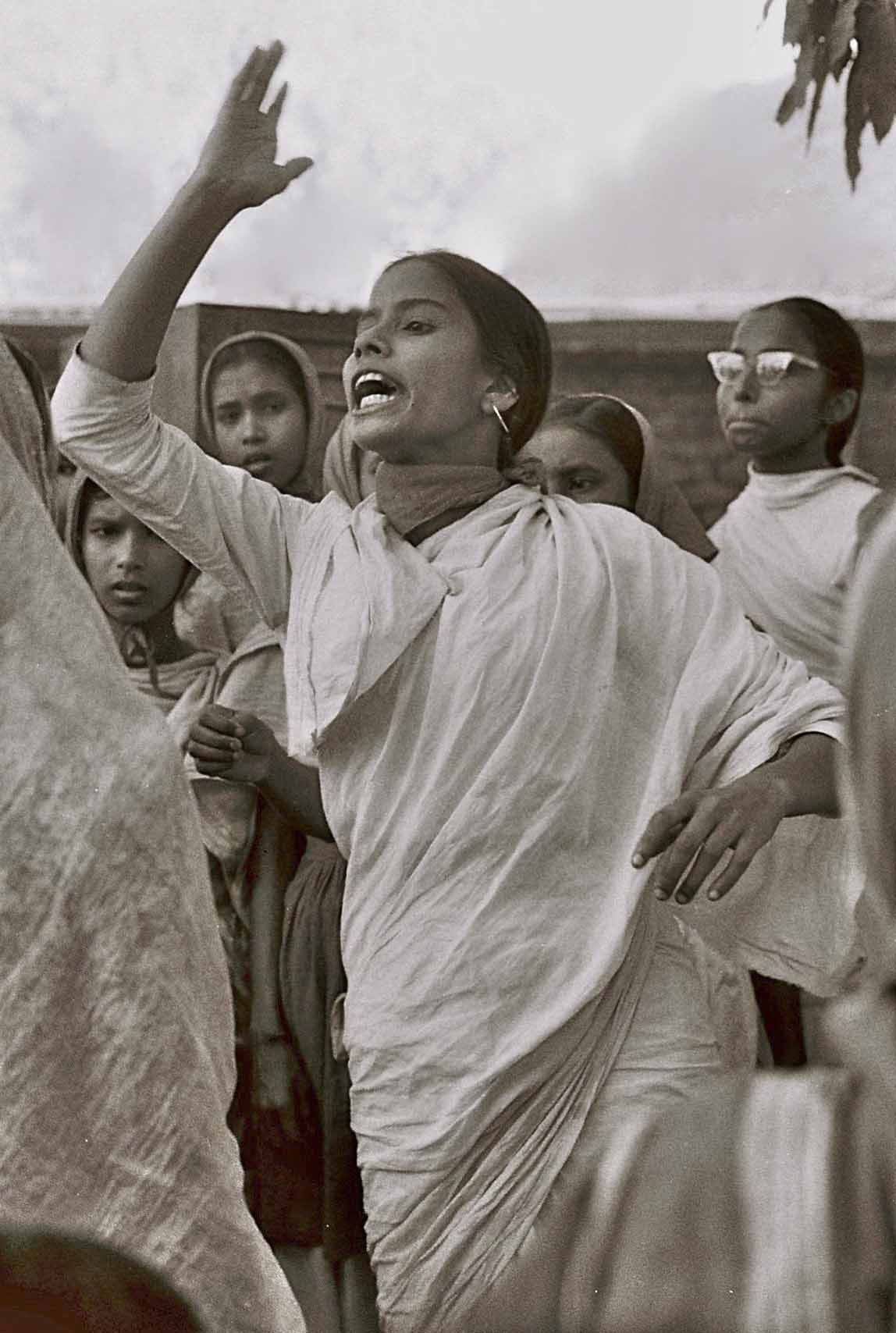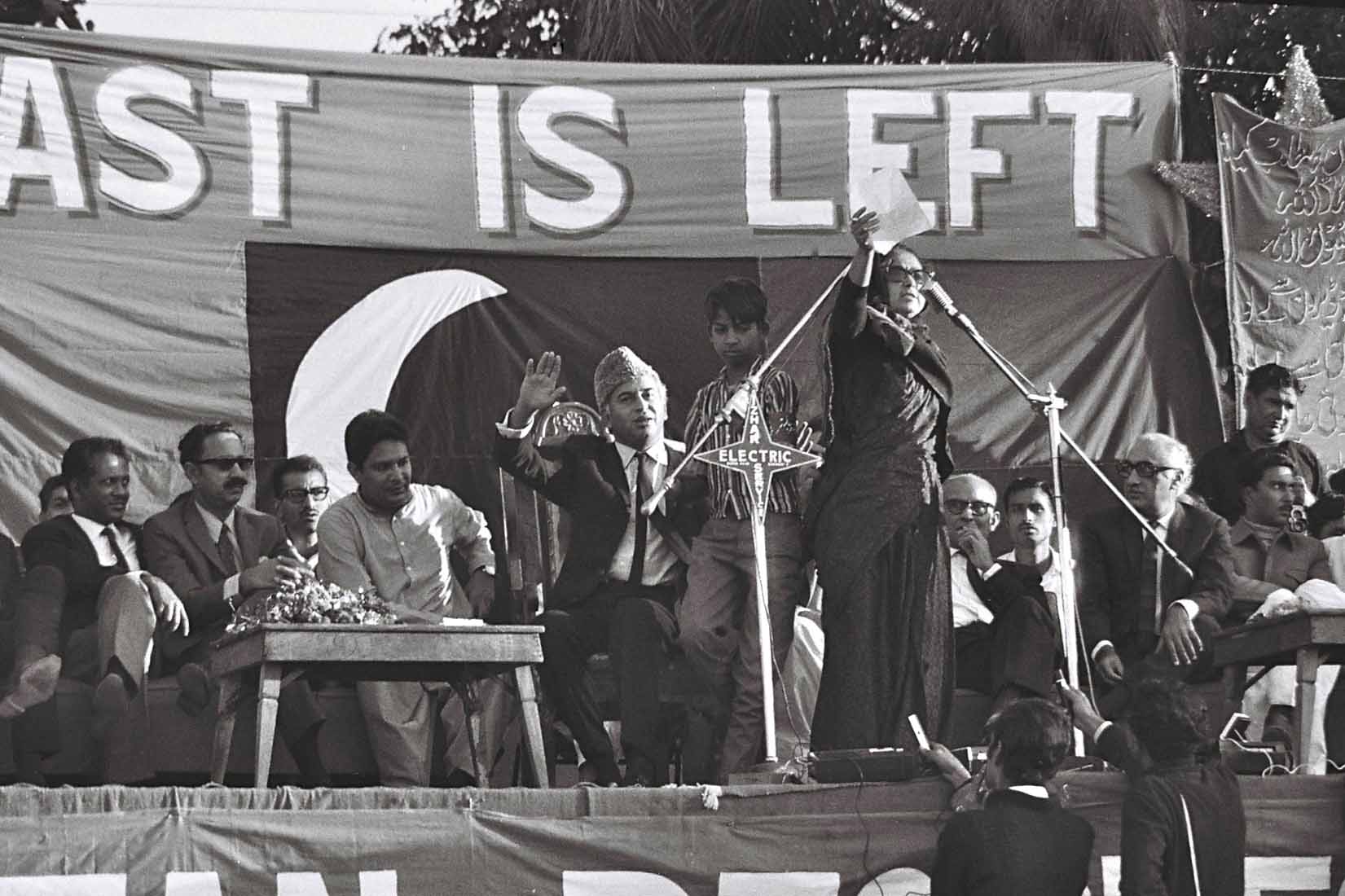General Elections
My wife and I were staying with the Governor of East Pakistan when President General Agha Muhammad Yahya Khan, H.Pk, HJ, S.Pk. psc., came to Dhaka. We spent a number of evenings with the president who contrary to his reputation acted like a gentleman throughout the evenings. He did not mind smoking my cheap K2 cigarettes, which I was smoking in place of French cigarettes, which were not available in Dhaka. He was relaxed. He was under the impression that with the election his job would be over. He allowed the election compaign to take place from 1st January 1970.
One of the oldest and most colourful election campaigners was Maulana Abdul Hamid Khan Bhashani, the self-educated son of a villager. Bhashani had entered active politics during the First World War. He joined the Indian National Congress in 1919, took part in the Khilafat movement in 1920 and the Non-Cooperation movement in 1921. He joined the Muslim League in 1930, and as the President of Assam Provincial Muslim League, he spearheaded the Pakistan movement in Assam and made a crucial contribution in favor of Pakistan during the referendum in Sylhet. At the time of partition Maulana Bhashani won a seat in the East Bengal Provincial Legislative Assembly (EBLA) from South Tangail constituency, which was not liked by the ruling Muslim League Party in Bengal. His election to the assembly was declared null and void, and he was declared disqualified by the provincial governor from running for election or from holding any public office. Therefore he broke away from the Muslim League and formed the Awami Muslim League in 1949, renaming it the Awami League in 1953. He separated from Suhrawardy and formed the National Awami Party in 1957. When the NAP divided into Pro-Moscow and Pro-Peking groups, he became the leader of the pro-Peking National Awami Party.
One of the largest gatherings of Bhashani supporters in East Pakistan was at Panchbibi. When I shook hands with him on arrival there to attend the conference, I found a rupee note in my palm. Bhashani smiled and said, “It is for you to get something to eat”. What they ate was very simple. Boiled rice was spread on coconut matting, from which each person received or took a handful of rice on a banana leaf and ate it with his hand.
The largest gathering of Maulana Bhashani activists in West Pakistan was at Toba Tek Singh. Toba means ‘pond’, and a pond was used by a Sikh named Tek Singh to provide water to thirsty travellers. When the British created canal colonies and settled people from northeast Punjab in them, it became part of Lyallpur district. It has now become an independent district, but unlike Lyallpur which has been renamed Faisalabad, Toba Tek Singh has retained its name, because of the charitable work done by Tek Singh. Apart from the large contingent of peasants from adjoining areas on foot and on horseback, there were a number of pro-Peking activists from cities and a large number of trade unionists at the gathering, especially railway workers from Lahore, at Toba Tek Singh.
Bhashani’s main opponent in East Pakistan was Sheikh Mujibur Rahman who had worked with Suhrawardy during partition. After independence, he had enrolled in the University of Dhaka to study law and had founded the East Pakistan Muslim Students' League. He was arrested and as protest observed a hunger strike. It made him one of the most prominent student political leaders in the province.
When dissident Muslim Leaguers from the Suhrawardy-Hashim faction joined hands with other progressive forces to form the East Pakistan Awami Muslim League (EPAML) on June 23, 1949, as the first opposition party in East Bengal, Sheikh Mujib joined it as joint secretary. In 1953 he became general secretary, and was also elected to the East Bengal Legislative Assembly in 1954, and to the Constituent Assembly of Pakistan in 1955. The United Front of Fazlul Huq, Maulana Bhashani and Suhrawardy routed the ruling Muslim League in the 1954 elections. In 1958 Ayub imposed Martial Law. Suhrawardy died in 1963 and Sheikh Mujib became the head of the Awami League. Sheikh Mujibur Rehman was now pitted against the might of West Pakistan, and demanding implementation of the Lahore Resolution. Ayub arrested Mujib and put him on trial on 19 June 1968 with 35 other persons for armed revolt with weapons and funds provided by India, in what is known as the Agartala Conspiracy case. However Ayub could not sustain it and withdrew the case on 22 February 1969 due to massive protest and law and order problems all over East Pakistan.
To calm things down, President Ayub agreed to hold a round table conference of political parties, which was boycotted by Bhashani and Bhutto, and was sabotaged by Mujib with the declaration of six points, which was totally unacceptable to Ayub. However it raised Mujib’s popularity, and he received a hero’s welcome when he returned to East Pakistan.
Ayub handed over power to army chief General Yahya Khan, who imposed martial law on 25 March 1969 and promised to hold elections. As 24 political parties and 1,957 candidates filed nomination papers for 300 National Assembly seats for the first general election in the history of Pakistan, therefore generals thought that no party would win a majority in the parliament and that they would have their way. However, Maulana Bhashani boycotted the election, held on 7 and 17 December 1970, and Sheikh Mujibur Rahman’s Awami League swept through East Pakistan, capturing 160 out of 162 seats in the National Assembly, and 288 seats out of 300 in the Provincial Assembly. In West Pakistan, the coalition of the National Awami Party of Khan Abdul Wali Khan and the Jamiat Ulema-e-Islam of Mufti Mehmood emerged as the largest party in the Frontier and Baluchistan. But Zulfiqar Ali Bhutto’s Pakistan Peoples Party surprised everyone by winning the majority in the Punjab by capturing 62 out of 82 NA seats, and 113 out of 180 PA seats. In Sindh, Bhutto’s PPP won 18 out of 27 NA seats but only 28 out of 60 PA seats.
Mr. Bhutto was in a quandary. If he accepted the democratic principle and allowed Sheikh Mujib to form the government in the centre, because he had won the majority of 160 out of 300 seats as against his own 81, then he would be left to form a government only in Punjab, which was not even his home province. And the way politics worked in Pakistan, once Sheikh Mujib was in power in the centre and had a friendly provincial government in Balochistan, Frontier and Sindh, then it would not take long to install a friendly government in Punjab, where despite winning 62 out of 82 NA seats Bhutto had secured only 41.6% of the electoral vote.
But Bhutto had won election from the army recruitment belt in Punjab; therefore he decided to ignore the majority principle. He declared Punjab and Sindh to be the citadels of power, using Jinnah’s ‘Tyranny of the Majority’ slogan against congress during the independence movement. His plan was to demand that that Sheikh Mujib give him an equal share in power at the Centre and make him deputy prime minister before he would attend the inaugural meeting of the newly elected National Assembly at Dacca on 3rd March 1971.
Zulfiqar Ali Bhutto began his public campaign for the share in power from Peshawar, followed by Rawalpindi, Lahore, Multan and Hyderabad. In each of the first five places he conceded one out of the six points of Sheikh Mujibur Rehman, but Sheikh Mujib remained unmoved. He believed that as majority party leader he was elected to form the government in the Centre and in East Pakistan. And Baluchistan and NWFP had been won by the coalition of the NAP of Wali Khan, and the JUI of Mufti Mahmood, which supported Sheikh Mujib. According to Sheikh Mujib, Bhutto had only won Punjab, as even in Sindh, he had won only 28 out of 60 seats in the Provincial Assembly. Thereafter at the last big political rally at Nishtar Park in Karachi, Bhutto in desperation raised the slogan of ‘Idhar Hum Udhar Tum’.
He also threatened to break the legs of those members of his party who would dare to go to Dhaka to attend the National Assembly meeting. In this he had the support of the generals. According to General Farman twelve generals were against handing over power to Mujib. Yahya dismissed his civilian cabinet on 17 February 1971 and called a meeting of generals on 22 February 1971, where he said that he would hold the assembly session only after the Awami League had been crushed. ‘Let us get the train moving again and this time by force’. However, the Governor and the Martial Law Administrator of East Pakistan, Admiral Ahsan and General Yaqub, disagreed with him.
Yaqub spoke up and said that the election had changed the situation, as the Awami League was looking forward to forming the government and exercising authority. Martial law is exercised through civil agencies. With shortage of troops it is even more so in East Pakistan. The civil administration has changed its loyalty. The East Bengal Regiments and the East Pakistan Rifles were under severe strain. The Indians would exploit the situation. The Eastern Command would be torn between inward deployment to deal with internal security and outward defence to meet the external threat … with draconian measures and reinforcement from West Pakistan we might in the short term, retain a degree of control but not be in a position to do so for long. If the aim was the integrity of Pakistan then it could hardly be achieved by such measures, as a strict application of martial law would mean causalities, which in turn would spread hatred and resentment against the armed forces. Thus, he said, we would be achieving results quite the opposite of the political aim intended. Even if we succeeded in bringing back law and order by force of arms we would have failed in the ultimate objective. Our success would be our failure. The naked sword of martial law against the 60 million people of East Pakistan, who had given their verdict in favour of a particular party, would be suicidal, was his conclusion.
Yaqub put his thoughts in writing and with the agreement of Ahsan, sent it to Yahya. Yaqub had served under General Yahya as his vice chief of general staff when the former was the CGS, and Yahya thought him to be ‘an officer of a very high calibre with unbiased views’. Therefore he was persuaded and asked Yaqub and Ahsan to persuade Bhutto to attend the session. Yaqub and Ahsan went to Karachi and met Bhutto on 24 February and asked him to attend the assembly session. Yahya himself went to Karachi and met Bhutto but Bhutto was adamant. He said that the Awami League was a middle class party therefore it was no threat as it would never dare to revolt.
